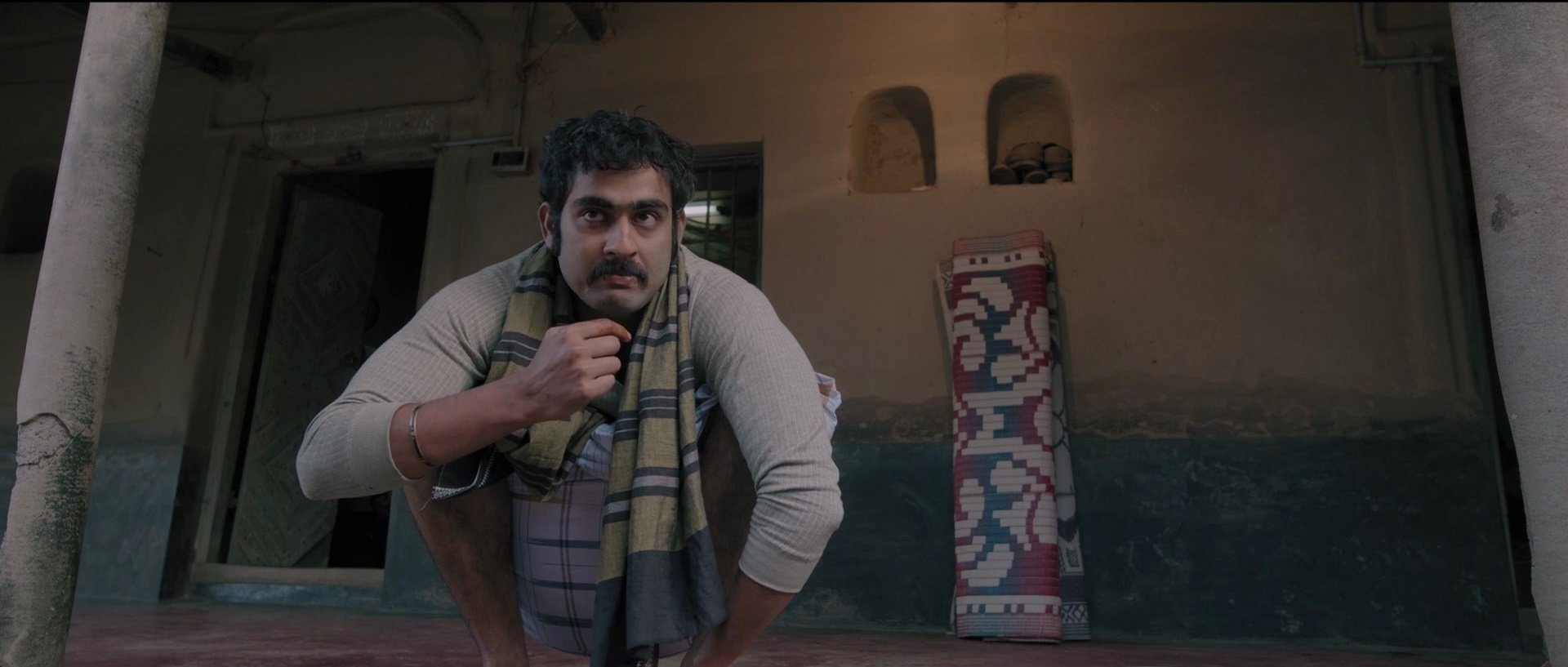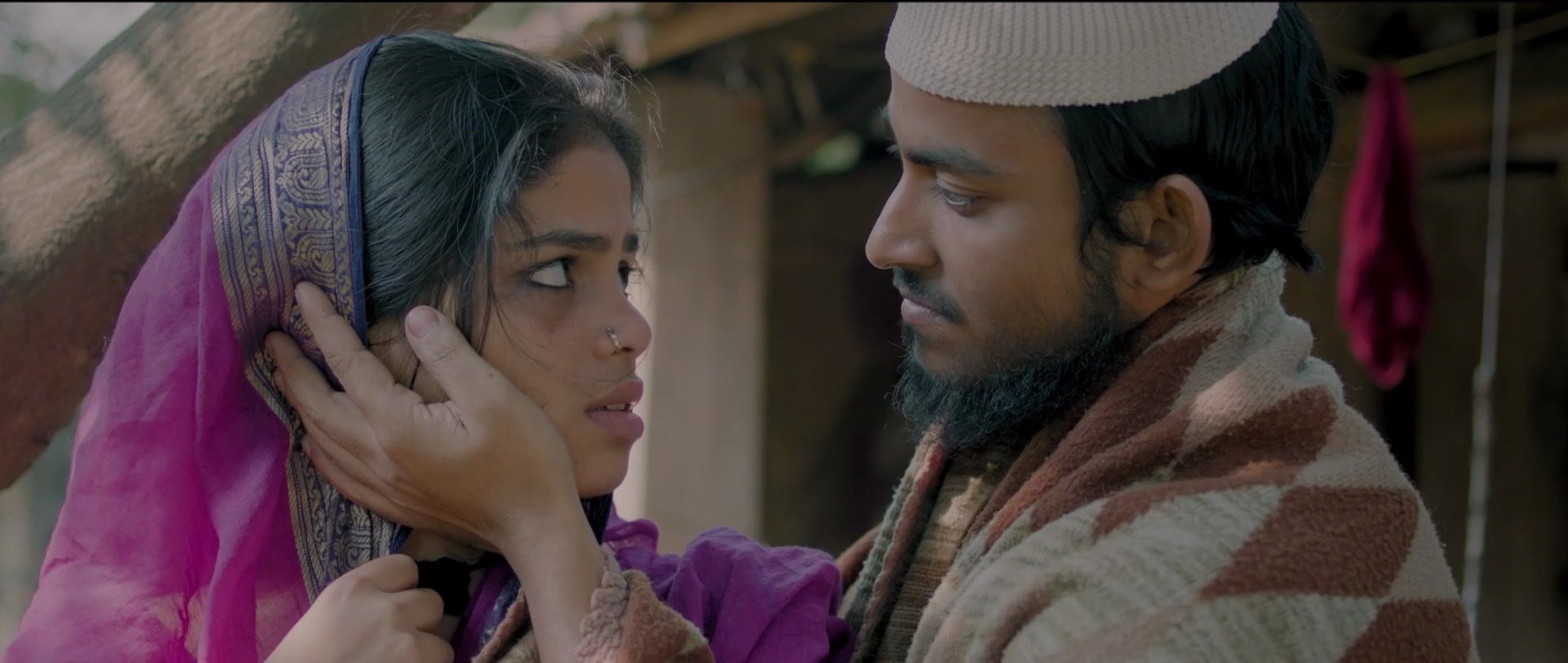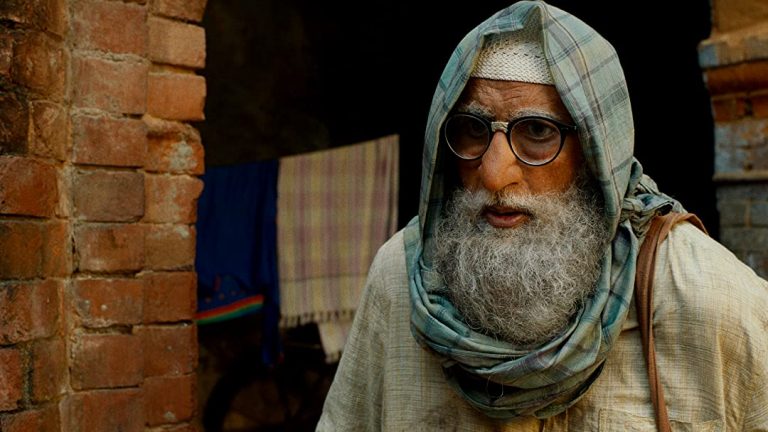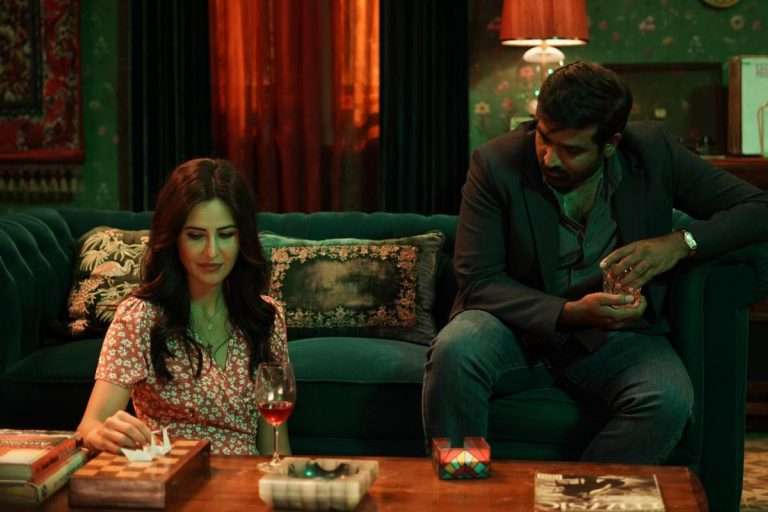“Dhulo (The Scapegoat)” opens with the shot of a head of a goat, looking like it is almost sleeping. A woman is walking through the field, as dawn peeks through the rustic nature of rural Bengal. The woman stumbles, falls, looks back at the cause of her stumble, and gasps. The goat head has been cut off from the body, dried blood caking the underside of its neck, the innards of the head almost ready to stumble. Terrified the woman runs away, as the shot lingers, and the name of the movie appears in the corner.
RELATED TO DHULO THE SCAPEGOAT: MISS MAN [2020] SHORT FILM REVIEW – JOURNEY THROUGH THE EARTH BETWEEN THE BINARY
Almost instantly as the movie progresses, you start to realize its technical proficiency. The editing is quick, the shots don’t linger more than necessary, the music is mostly stringed, the shot of the goat head is signifying the violence to come. Tathagata Ghosh has never been an apolitical filmmaker. This is another aspect of his filmography which proves that art is political, and has always been, whether it be subtle or exaggerated. Any filmmaker’s expression of art is in turn an expression of his own beliefs, and Dhulo – the Scapegoat (2021) is Ghosh at his most political, and definitely his most angry.
The energy of that residual anger cannot be denied, as it is present at almost every frame. Bimal Giri’s Swapan Dutta is the party leader of that village, and he is terrifying. He is Ghosh’s version of the current regime distilled down to a single man – a boorish, misogynist, religious extremist. His hatred towards his Muslim neighbors might have been indoctrinated to him by birth. But currently, it is being indoctrinated either by his superiors or by the radio acting as the propaganda machine. The PM’s speeches are almost the cause of the inception of communal hatred. Which is frightening because it is becoming harder and harder to argue.
The storyline begins as Swapan is unable to bring in goat meat from the village market. He sends his wife to convince the Muslim neighbors to forego the burial of the goat in favor of selling the carcass off. When Ali, the patriarch of that family argues, stating to Neeta, Swapan’s wife “Want to make a meal of my goat? We are Muslims. Not butchers.”, that line hits you because of its stark simplicity as well as the weight of the words it carries.
Also, Read: NASIR (2020) MAMI REVIEW: A NUANCED LOOK AT THE LIFE AMIDST COMMUNAL BIGOTRY
What occurs next after this incident forms the bulk of the story, which is at once haunting and terrifying. It is haunting not because of the exaggeration in the characters. It is because of the kernel of truth existing within the actions of said characters. Whatever actions Swapan or Neeta take in the movie might feel exaggerated. But the truth of the existence of such actions beneath the core of such characters cannot be denied. Neeta’s character arc throughout the 24-minute runtime of the film is a sublime work of acting by Payel Rakshit. It transforms Neeta from a meek individual to someone ready to stand up to her intimidating and bullying husband. Conversely, Swapan’s character becomes more and more despicable as the movie progresses.
The distillation of the current political regime and director Tathagata Ghosh’s anger towards said regime becomes evident at every frame. This almost incandescent anger kind of causes the nuance of Swapan as a character to fade away. Which makes Swapan feel almost cartoonishly evil in the script.
However, Communal and casteist violence is something that can be conveniently ignored, but nobody can deny its existence. Human’s proclivity of evil can never be truly quantified. So even as you watch the film and feel the evil of the character as cartoonish or exaggerated, Bimal Giri gives it his all in the character. So much so that the fear or the hatred you feel for the character never really go away. Conversely, Neeta’s completion of her character arc would make you feel a semblance of satisfaction in a movie dealing with the dark underbelly of rural politics in Bengal.
For a movie as dark or bleak as Dhulo, Tuhin’s cinematography makes the movie look exquisite. Amir Mondal’s editing ensures that the movie’s pacing is brisk and to the point. There are no unnecessary shots, neither are there lingering moments until the end. Tathagata Ghosh’s Dhulo (The Scapegoat) is a searing and angry movie directed at the current government. And while lack of nuance or greyer shades is noticeable, the anger is overwhelming, and something sorely needed. In that respect the movie is important. It also helps that the movie looks and sounds great. In terms of technical proficiency, this is easily Ghosh’s finest work.







![Kesari [2020] Review: An Exquisitely-Shot Yet Middling Sports-Drama](https://79468c92.delivery.rocketcdn.me/wp-content/uploads/2020/03/169467.jpg)


![Sorry To Bother You [2018]: ‘MAMI’ Review – An Inventive and Original Screwball Comedy](https://79468c92.delivery.rocketcdn.me/wp-content/uploads/2018/11/714047-sorry-to-bother-you-768x432.jpg)
